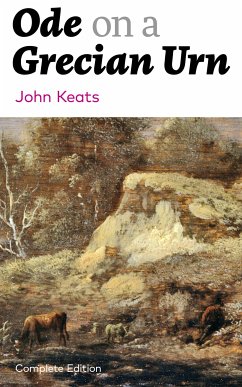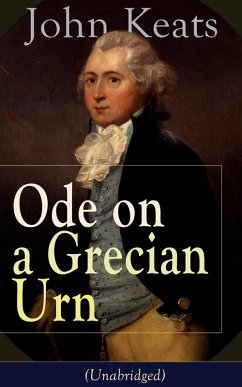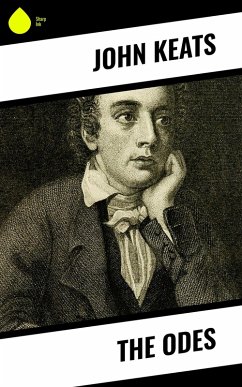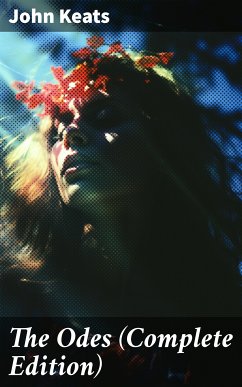
Ode on a Grecian Urn (eBook, ePUB)
Versandkostenfrei!
Sofort per Download lieferbar
1,99 €
inkl. MwSt.
Weitere Ausgaben:

PAYBACK Punkte
0 °P sammeln!
John Keats's "Ode on a Grecian Urn" masterfully intertwines rich imagery and profound philosophical inquiry, capturing the essence of beauty and truth through the lens of an ancient artifact. The poem unfolds in a series of contemplative stanzas, where the speaker engages with the urn's frozen scenes, contemplating the paradox of ephemeral human experiences against the timelessness of art. Keats employs a Romantic style, imbued with sensual language and vivid descriptions, to explore themes of love, transience, and the interplay between reality and idealism, situating the work within the broad...
John Keats's "Ode on a Grecian Urn" masterfully intertwines rich imagery and profound philosophical inquiry, capturing the essence of beauty and truth through the lens of an ancient artifact. The poem unfolds in a series of contemplative stanzas, where the speaker engages with the urn's frozen scenes, contemplating the paradox of ephemeral human experiences against the timelessness of art. Keats employs a Romantic style, imbued with sensual language and vivid descriptions, to explore themes of love, transience, and the interplay between reality and idealism, situating the work within the broader Romantic movement's pursuit of transcendence through art. John Keats, one of the most prominent figures of the Romantic era, was deeply influenced by his own tragic experiences and the fleeting nature of life. His background in medicine, coupled with a passion for poetry, allowed him to merge scientific observation with artistic expression. The creation of "Ode on a Grecian Urn" was spurred by an intense exploration of mortality and the enduring legacy of beauty, which characterizes much of his oeuvre. This compelling ode is essential reading for anyone interested in the nuances of art, beauty, and the human condition. Keats's eloquent exploration invites readers to reflect on their own experiences with art and its capacity to immortalize moments that life itself cannot sustain.
Dieser Download kann aus rechtlichen Gründen nur mit Rechnungsadresse in A, B, BG, CY, CZ, D, DK, EW, E, FIN, F, GR, H, IRL, I, LT, L, LR, M, NL, PL, P, R, S, SLO, SK ausgeliefert werden.












